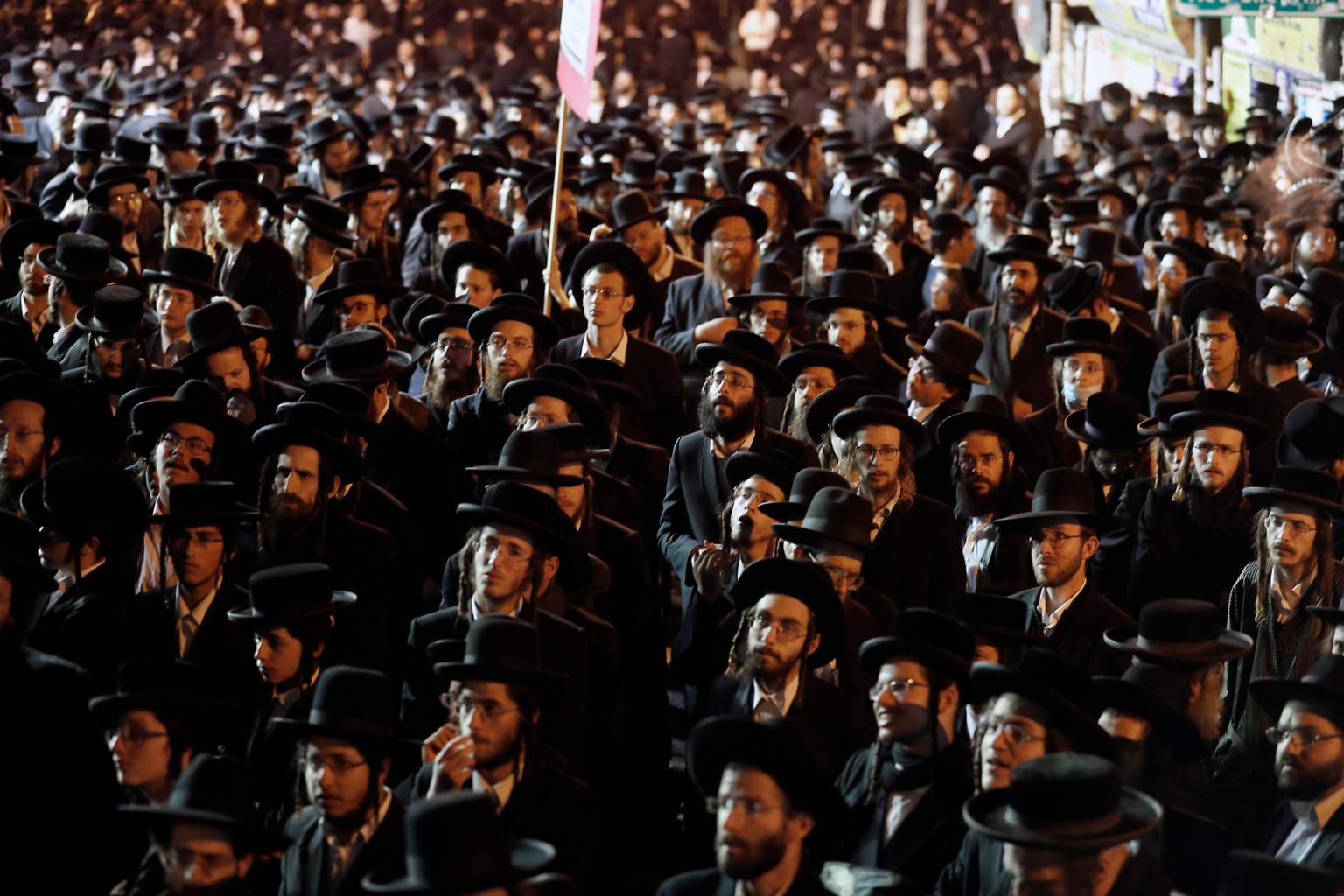Coronavirus weakens Netanyahu's staunchest ally ahead of Israel's polls
Sign up now: Get ST's newsletters delivered to your inbox

Ultra-Orthodox Jews make up about an eighth of Israel's 9.3 million people, but a fifth of the daily infections.
PHOTO: AFP
JERUSALEM (BLOOMBERG) - About half of Israel's ultra-Orthodox Jewish community thinks their own leaders have failed them during the coronavirus pandemic - and that could hurt Prime Minister Benjamin Netanyahu's already troubled re-election bid.
Talk of boycotting the March 23 election is percolating, according to Mr David Dror, founder of the Askaria research company. In Israel's fractured political landscape, a party's loss of a parliamentary seat or two can determine the outcome of the entire vote.
Ultra-Orthodox, or haredi parties have been staunch allies of Netanyahu and currently control 16 of Parliament's 120 seats. Any weakening of their clout would make it even tougher for the prime minister to form a governing coalition, said Tel Aviv University statistician Professor Camil Fuchs.
"It distances him from the 61 seats" he needs for a parliamentary majority, Prof Fuchs said.
A Netanyahu ally, speaking anonymously to discuss sensitive matters, said their Likud party wasn't worried about the prospect.
The ultra-Orthodox make up about an eighth of Israel's 9.3 million people, but a fifth of the daily infections, according to Health Ministry data. Their large families typically live in cramped quarters that have been incubators for the disease.
Askaria polls show that 20 per cent plan to sit out the upcoming ballot or are considering it. If those numbers hold, the two haredi parties could lose three parliamentary seats. Other polls by non-haredi research companies show them losing one to three seats.
Almost half of the community is dissatisfied with ultra-Orthodox lawmakers' handling of the health emergency, another Askaria survey found.
"There are those who think perhaps the politicians didn't do enough," allowing the community to be demonised as scofflaws, said Mr Moshe Friedman, a co-founder of Kamatech, a company that brings haredim into high tech jobs.
"While a large number of haredim keep the rules, there are those who don't follow them and then all of them don't look good, so they say why didn't the political leaders fight the extremists?"
Other haredi critics say their politicians should have done more during the pandemic to let them preserve practices like communal prayer and religious study so central to their spiritual life.
Some haredi synagogues and schools remained open in defiance of health regulations, thousands have packed funerals, and protests against restrictions have occasionally turned violent. This conduct deepened the rift with secular Israelis who already resent that haredi men can skip compulsory military service and study religion instead of work thanks to state stipends.
The haredi violations also angered some ultra-Orthodox.
Mr Yehuda Meshi-Zahav, the founder of the Zaka emergency response team that's dispatched internationally to disaster sites, recently lost his parents and brother to the virus within weeks. He thinks the community as a whole should show greater responsibility.
"It reminds me of the movie Titanic," he told Channel 12. "There are those who need to respond to it but instead life goes on, and up on deck someone is arguing about which waltz to play."
Asked about criticisms of the haredi political class, senior ultra-Orthodox lawmaker Moshe Gafni insisted that leaders "did not disappear." He also indicated that his party wouldn't necessarily line up behind Netanyahu.
"We will talk about it when we see the results," he told Channel 12. "Things are different now. This is a difficult reality that we are in."


